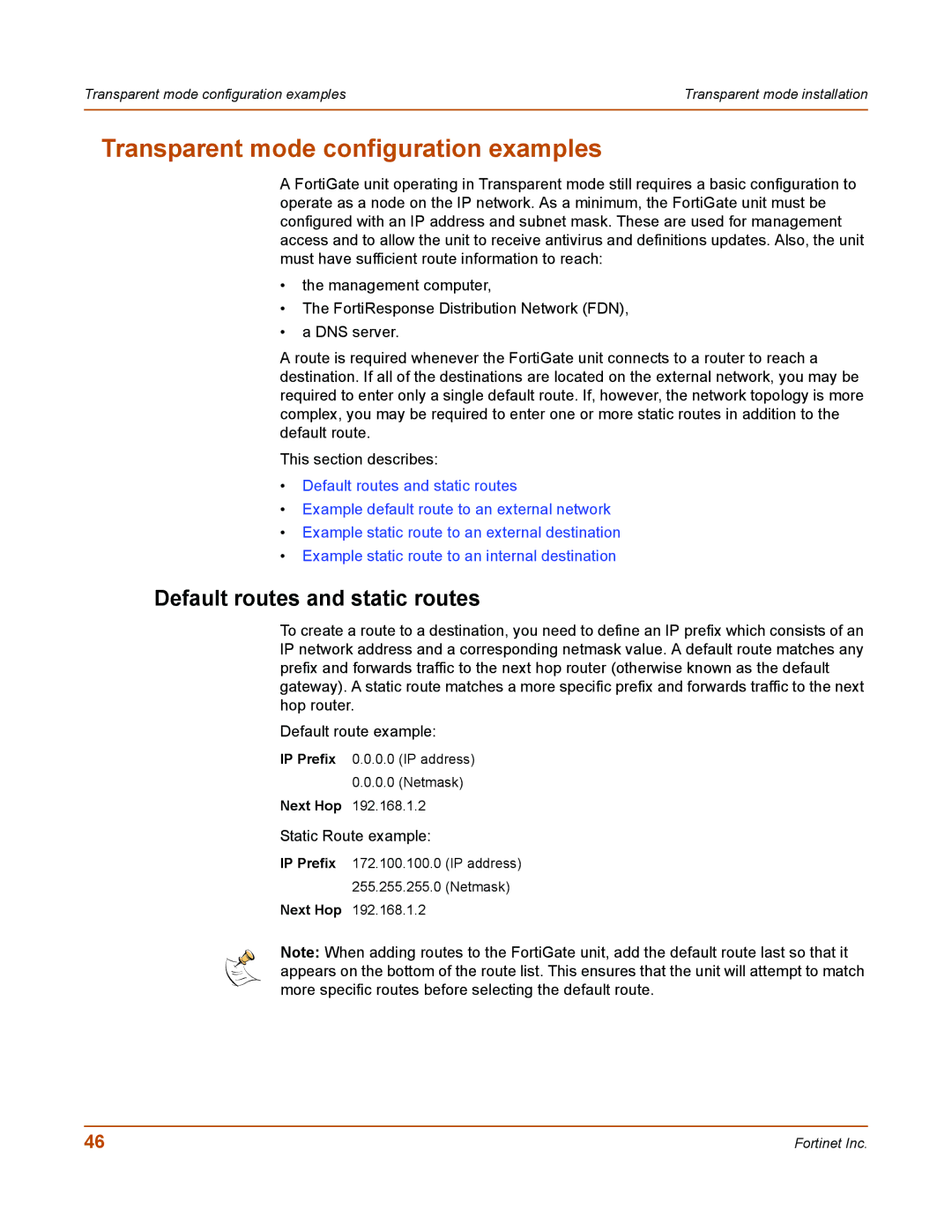
Transparent mode configuration examples | Transparent mode installation |
|
|
Transparent mode configuration examples
A FortiGate unit operating in Transparent mode still requires a basic configuration to operate as a node on the IP network. As a minimum, the FortiGate unit must be configured with an IP address and subnet mask. These are used for management access and to allow the unit to receive antivirus and definitions updates. Also, the unit must have sufficient route information to reach:
•the management computer,
•The FortiResponse Distribution Network (FDN),
•a DNS server.
A route is required whenever the FortiGate unit connects to a router to reach a destination. If all of the destinations are located on the external network, you may be required to enter only a single default route. If, however, the network topology is more complex, you may be required to enter one or more static routes in addition to the default route.
This section describes:
•Default routes and static routes
•Example default route to an external network
•Example static route to an external destination
•Example static route to an internal destination
Default routes and static routes
To create a route to a destination, you need to define an IP prefix which consists of an IP network address and a corresponding netmask value. A default route matches any prefix and forwards traffic to the next hop router (otherwise known as the default gateway). A static route matches a more specific prefix and forwards traffic to the next hop router.
Default route example:
IP Prefix 0.0.0.0 (IP address)
0.0.0.0(Netmask)
Next Hop 192.168.1.2
Static Route example:
IP Prefix 172.100.100.0 (IP address) 255.255.255.0 (Netmask)
Next Hop 192.168.1.2
Note: When adding routes to the FortiGate unit, add the default route last so that it appears on the bottom of the route list. This ensures that the unit will attempt to match more specific routes before selecting the default route.
46 | Fortinet Inc. |
